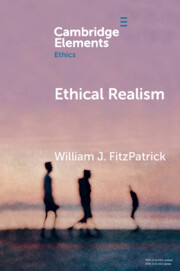Element contents
Ethical Realism
Published online by Cambridge University Press: 25 January 2022
Summary
- Type
- Element
- Information
- Series: Elements in EthicsOnline ISBN: 9781108580885Publisher: Cambridge University PressPrint publication: 17 February 2022
References
- 10
- Cited by

